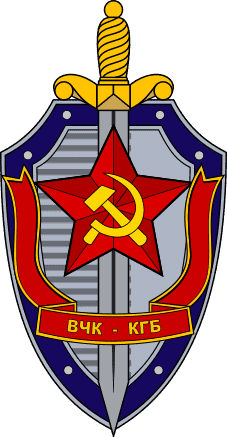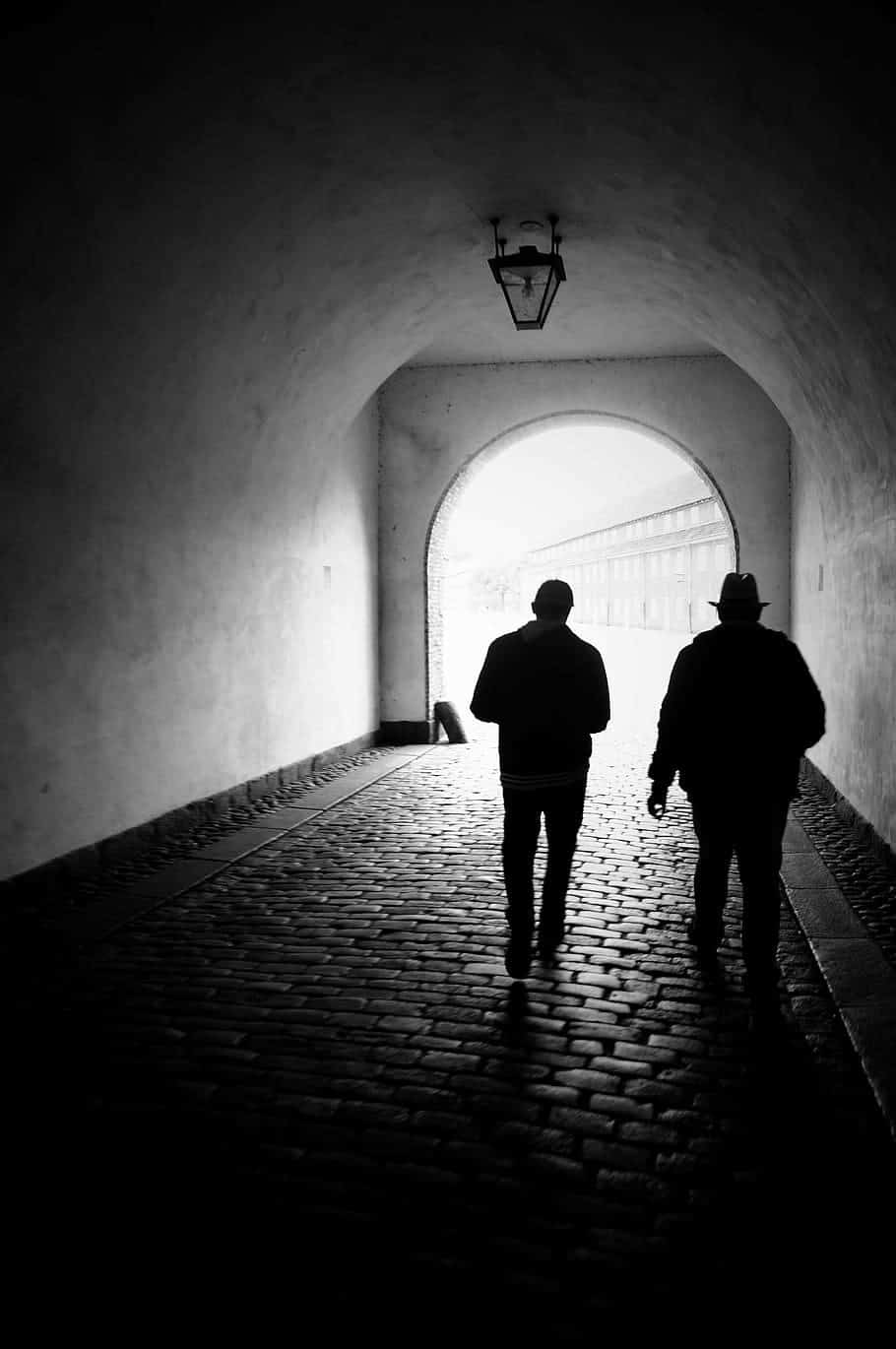Benedict Arnold. Julius and Ethel Rosenberg. Mir Jafar. All of these individuals have something in common: they all betrayed their countries. Even with the passage of time, an air of notoriety still clings to their names.
Defection occurs in all countries and is fueled by the desire for money, power, or fame. Defection can also be the result of ideological opposition to the national government and its policies.
The KGB—the foreign intelligence and domestic security service of the Soviet Union, and the precursor to the modern-day FSB—found a number of defectors among its ranks. Deepening ideological disagreements with the Soviet system coupled with the growing curiosity of the prospect of starting a life elsewhere caused some agents to start working for the West.
In this “Moment” in U.S. diplomatic history, we see that Yuri Nosenko was one of these individuals. In 1962, he approached FSO David E. Mark, who did a temporary assignment for the CIA a few years prior. In addition to offering confidential Soviet information, Nosenko also claimed to be able to provide useful intelligence about Lee Harvey Oswald, who lived in the Soviet Union prior to assassinating President John F. Kennedy in 1963.
Following concerns regarding the sincerity of his claims, the CIA accepted his defection in 1969. Nosenko became an American citizen and continued to work as a consultant for the CIA.
FSO David E. Mark was serving in Geneva as a part of the Nuclear Weapons Conference when he was approached by Yuri Nosenko in 1962. Later in his career, he served as the Ambassador to Burundi under President Gerald Ford.
Mark’s interview was conducted by Henry Precht on July 28, 1989.
Read Mark’s full oral history HERE.
Read about FSOs’ experiences being stalked by the KGB HERE.
Drafted by Sophie May
ADST relies on the generous support of our members and readers like you. Please support our efforts to continue capturing, preserving, and sharing the experiences of America’s diplomats.
Excerpts:
“I’m new on the Soviet delegation and I’d like to talk to you.”
Lunch Date with a KGB Man: I didn’t finish with one other thing about the test ban talks, and that was, I think, it must have been in early ’63, when we were already part of the 18-nation disarmament conference. But it might have been late ’62, but I think it was early ’63. At the end of one of our meetings—this was a meeting on the nuclear test ban, which, as I noted earlier had become a subcommittee of the main 18-nation subcommittee, still consisting of just the British, Americans and Soviets, a Soviet delegation member came up to me. As I said earlier, we had then inaugurated, what is now standard disarmament practice, these information conversations, postmortems on the meeting. And he said to me, “I’m new on the Soviet delegation”—in Russian—”I’m new on the Soviet delegation and I’d like to talk to you.”
And I said, “Go ahead. We’re talking.”
And he said to me, “No, but I don’t want to talk here. I want to have lunch with you.”
I said, “Okay. Where?”
He said, “Well, you know Geneva better, so you pick a place.”
And I said, “Okay.” And I thought of a restaurant a little bit out of town and said, “Well, how about meeting there?”
And he said, “When?”
“Well, whenever you want.”
“Tomorrow.”
“Okay. We’ll meet tomorrow.” So, of course, I told the CIA people about this right away, and they said, “God, why did you pick that restaurant? That’s where all the spies go.”
I said, “Well, it seemed nice, out of town.”
They said, “Well, we’ll cover you there just in case there’s anything funny going on here.”
“So I can give you some information that will be very interesting to the CIA, and all I want is my money.”
Drunken Mistake: We got out to the restaurant and he was there; and he said to me that his name was Yuri Nosenko. He was the new security officer for the Soviet delegation; and he had come to me because he had to do some business with the Americans, and he knew that I was a CIA man. And I said, “But I’m not a CIA man. I’ve always been in the Foreign Service.”
“Oh, no, no,” he said, “I know about that, because I’ve read your file in Moscow, and it says you’re a CIA man,” going back to these incidents while I was at Embassy Moscow.
And I said, “I won’t argue with you about that. What is the problem?”
And he said, “The problem is that, as the security officer of the Soviet delegation and a member of the KGB, I am given some dollars for emergency use.” The dollars in his case were $900. In 1989 terms, that might be about $2,500 or $3,000. And he said, “I did something I shouldn’t have done. I went to a bar. We’re not supposed to do that, but I went to a bar and I got drunk, and the money was stolen from me. I’ve got to account for it. I’ve got to make it up. So I can give you some information that will be very interesting to the CIA, and all I want is my money.” So I gave his presentation in detail to the CIA.
“That’s not the Soviet Union that I grew up in nor the motherland that I want to defend.”
Deal with the Devil:
Q: He gave the so-called information?
MARK: No, he described the nature of some Soviet operations, without naming people or places that he would betray.
Q: There was no deal yet?
MARK: There was no deal. I didn’t have the money anyway. And so I told the CIA people and they said, “Oh, he’s just kidding you. He can’t really, as a KGB man, believe that he can sell us two bits of spying information, and then that’s that. Because once he does that, so to speak, he’s in our clutches.”
I should say that at lunch I had asked this guy, I said, “Okay, you’re in trouble. Why not confess you did something wrong? You lost the money and you’re terribly sorry. It will hurt your career some, but look, now you’re going to commit treason. You want to turnover information to me that—
Q: You’re trying to save his soul.
MARK: No. I was trying to understand a KGB man’s mentality. But he said, “But I don’t feel that way about things. I’ve been in the KGB a long time, and when Stalin was running things—and that was almost ten years earlier—we knew where we stood. I worked in the Kremlin guard unit at that time, and I knew I was defending the Politburo and I was defending the party and whatnot. Now with this guy Khrushchev, I don’t know whether I’m coming or going. He’s changing things all around the party, the system. He’s making bad speeches about Stalin. That’s not the Soviet Union that I grew up in nor the motherland that I want to defend.”
Well, maybe this was a rationalization on his part, but it may be the way some people are thinking about Gorbachev at the present time. Who can tell? Who can tell? In any event, when I told the CIA people, they said, “Well, we’ll just take him over from you. So you arrange a meeting place.”
Q: Were they trying to dismiss him as not serious in order to get you away from the game?
MARK: No, no. I wanted to get out of the thing. I had no interest in following up on it. On the contrary, they were in dead earnest. I mean, what turned out—and I guess I can say this here; I don’t know if I should.
Q: Sure.
MARK: Maybe it’s still classified; maybe not. They succeeded. I mean, they got hold of him, and I guess they gave him his $900. But what they did was to turn him into a double agent. And Nosenko went back to Moscow for two years, and I was told later that he had been extraordinarily valuable to us for that period.
“Nosenko did tell us that the KGB had had nothing to do with the assassination.”
The Kennedy Connection:
Q: Did he eventually defect?
MARK: Yes. Nosenko defected two years later publicly, again in Geneva. He was security officer for another Soviet delegation, and he openly defected, and the Soviets complained and the Swiss investigated, duly and whatnot, and the Soviets accused us, of course. I don’t know the details, but I think that after two years of being a double agent, things were getting a little hot in Moscow, or he was afraid they were. Ironically, he came here soon after Kennedy’s assassination, and there was part of the CIA led by the then chief of CIA counterintelligence, James Angleton, which believed that the Soviets, through Lee Harvey Oswald, who, after all, had a big personal Soviet connection, had been involved in the Kennedy assassination. And they thought that Nosenko had been sent over here by the KGB to disabuse us of the idea of Soviet involvement.
Now, Nosenko did tell us that the KGB had had nothing to do with the assassination, because that is what he knew to be the situation. Angleton didn’t believe it, and he, in effect, arrested Nosenko and kept him in a CIA jail for three years. Now, I thought that whole approach was ridiculous. How could Angleton, knowing of the two years in which Nosenko had been a double agent, and an extremely valuable double agent, knowing in effect that he had really first defected from the then Soviet Union in late ’62 or early ’63, let’s say, how could he believe that Nosenko would do the Soviets’ bidding and palm off a phoney story about Lee Harvey Oswald after Kennedy’s assassination. It didn’t make any sense.
But nevertheless, Nosenko went all through this. Angleton was finally overruled on this, and then forced to retire, not only for this, maybe, for other things, too. And some aspects of his story have come out in testimony before one Congressional committee. Not all about the double-agent part, but about Nosenko and his quasi-jail sentence that followed.
Q: What happened to him after this?
MARK: He has been successfully resettled here, and I don’t know what his current name is or what he’s doing or where he’s living, but he has successfully resettled in the United States.
TABLE OF CONTENTS HIGHLIGHTS
Education
BA, Columbia University 1945–1949
Columbia University Law School 1949–1951
Joined the Foreign Service 1946
Seoul, Korea—Political Advisor to U.S. Military 1946–1949
Bucharest, Romania—Deputy Chief of Mission 1952–1954
Moscow, USSR—Counselor of Embassy 1957–1959
Burundi—Ambassador 1974–1977


